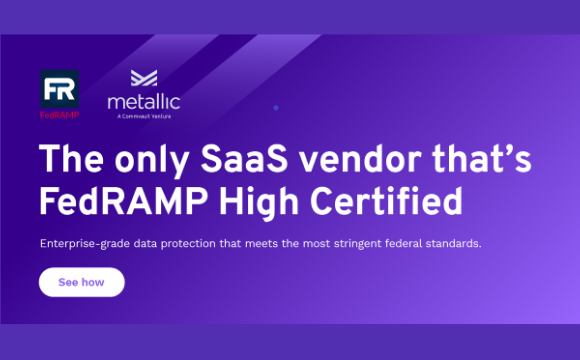Sponsored: Has the Simplicity of SaaS Finally Arrived for Data Management in the Cloud?
Cloud services are becoming an essential component for the modern, digital world to provide secure services to its citizens.
What comes to mind when you think of simplicity? Something that is readily apparent and understandable with little additional guidance? A simple algorithm or a simple mathematical solution? Or rather a simple solution to all problems? When we think of simplicity, we think of Edsger Dijkstra’s words: “Simplicity is the prerequisite for reliability.” Essentially, we’re talking about a solution that is simple, reliable, secure, and that meets all ends at any given stage in a single complicated journey.
Today, moving to the cloud has become the new best business practice, a prerequisite for businesses to leverage the IT industry. And why not, if ease and efficiency are both met in one single solution. Government agencies are not left behind either. Today 83% of public sector agencies either have a cloud strategy in place or in development. Cloud services are becoming an essential component for the modern, digital world to provide secure services to its citizens. But this transformation continues to come with challenges.
Federal agencies are accustomed to dealing with complicated and critical data on a much larger scale. From citizen records and national security to finance, logistics and drone videos, federal agencies store petabytes of semi-structured and unstructured data on a day-to-day basis. Unfortunately, 73% of federal IT managers report that traditional data centers are either not effective enough to pull value out of their data or struggle to harness and secure data, while facing challenges of data backup and recovery. The ability to manage data securely with one simple solution has become of paramount importance.
Understanding these pain points experienced by not only federal agencies, but organizations of all sizes, was the impetus for Commvault launching its Software-as-a-Service (SaaS) offering, Metallic. Designed to make backup and recovery of data —the lifeblood of today’s digital world — simple, Metallic allows organizations to go to the web and seamlessly download software that protects all files, contacts, mail and documents with a “simple click.”
That same ease of use is now being made available for federal agencies, and other government bodies and private sector businesses supporting these agencies — providing that much needed assurance that there are commercial cloud-based solutions that meet regulations set forth by the Federal Risk Management and Authorization Program (FedRAMP). And while the FedRAMP process is arduous, the goal of that program is about making compliance ‘simple and standardized’’ ensuring federal agencies and private sector organizations that Metallic meets Federal mandates on security. Accepting risks, or not understanding the accepted risks, has often been a shortcut to fielding IT solutions. Given the recent events of the day, like the SolarWinds compromise, that approach can no longer be a model.
With that in mind, Commvault went the extra mile, launching its new Metallic™ Government Cloud offering and achieving FedRAMP High Ready status. Not only is Metallic Government Cloud the ONLY SaaS data protection offering to currently meet FedRAMP High Ready standards, but it’s hosted exclusively on Microsoft Azure Government Cloud, enabling federal and government agencies to meet the most stringent security protocols. Metallic Government Cloud will initially offer support for Office 365, covering agencies running Office 365 GCC High environments, with additional workloads as well as Metallic Cloud Storage to be added in the coming weeks and months.
For federal agencies, businesses operating in highly regulated industries, government contractors, and publicly traded companies, their ability to be ready to effectively respond to the next crisis depends on the simplicity and security of solutions. Metallic Government Cloud not only provides data readiness for today but is also the linchpin for operational readiness and business integrity tomorrow.






Comments